Not many understand the pain, anguish, suffering and the agony that generations of people belonging to a particular community have been subjected to. Only the wearer of the shoes knows where it pinches. And to come from such a marginalised community and fight for their rights requires something extraordinary.
One such person is Bezwada Wilson, Founder and National Convener of Safai Karmachari Andolan (SKA), who was conferred the RamaGovinda Award instituted by Smt. D. Ramabai Charitable Foundation and Sri M. Gopinath Shenoy Charitable Trust in city recently.
Star of Mysore Features Editor N. Niranjan Nikam caught up with this ebullient person, after he received the award, at the backstage of Kalamandira, where even as a few people waited patiently to meet him, Bezwada Wilson, whose communication skills leaves one flustered as he speaks passionately and asks searching questions which leaves one looking inward, revealed why he took time to accept Ramon Magsaysay Award, his parents’ influence on him and the mindset of politicians and bureaucrats regarding Safai Karmacharis. Excerpts…—Ed
By N. Niranjan Nikam
Star of Mysore (SOM): You have been conferred the RamaGovinda National Award today in Mysuru. How do you feel receiving this Award for all the kind of work you are doing to Safai Karmacharis as a person coming from the same background and being the Safai Karmachari Andolan (SKA) Founder?
Bezwada Wilson: This is kind of an opportunity for me to express my feelings of the community I belong and since I also come from Karnataka I felt that I should come and receive this Award. Moreover, I am also thankful to the people who chose me for this honour. Before I came here I did talk to my Board and they asked me to accept this Award.
SOM: You are already a Magsaysay Award winner. How did you feel when you were chosen for that prestigious Award in 2016?
Bezwada Wilson: Before that I had not accepted any Award. I have always believed that the work I am doing is not mine, it is actually the women who need to be recognised because it is they who mostly do the manual scavenging. One day I got a call in my office that I should talk to the person at the other end. The person there asked if I knew anything about Ramon Magsaysay. I said I had heard of him. Then the person said that I was chosen for the Award but it should be kept very confidential. I said I was not interested in receiving the Award and kept the phone down. Then I started receiving SMS on my phone and I ignored all of them. Finally, I got a call from the Director of RMAF (Ramon Magsaysay Award Foundation) who said that I must accept. I said that I will not receive it but if at all it is given then it should be given to the women of SKA and not to me as they are the ones who truly deserve it. The Director said that I could not choose the people as it was for them to decide.
Then they sent me two forms to fill. Without even looking at it I put it aside. One day they called me at 7 in the morning and told me that they wanted to come home. I told them I don’t have a home of my own. I live in the office. They told me that they would come at 9 to collect the forms. I had not even filled it. I again said I cannot accept the Award. Finally, they announced my name for the Award and I did not even know about it. I was out to get my clothes pressed, when the media descended on my office. When I returned I was surprised to see so many people.
One of my friends told me now that they have announced your name you reject it, then you will get more importance as not many reject this Award. I said I cannot do that. I do not think of myself as such an important person. They called me and said I should come. I said I did not even have a passport. They said that they would arrange everything. I told them that I am going to bring the women who have worked with me but they also do not have passports. They said you can bring as many people as you want and arrangements will be made for everyone.
SOM: Are you married?
Bezwada Wilson: I am not married. I took five women Safai Karmacharis with me. The other awardees including T.M. Krishna, who was also a recipient along with me, came with his family including his mother.
SOM: When we were growing up, the toilets were invariably outside the houses and in some homes quite a distance away. The scavengers (I believe this word is banned now) or Safai Karmacharis would come and clean the toilets. But now things have changed and in middle class homes there are at least two toilets in each home and the people themselves clean them. Isn’t this a significant change from the past?
Bezwada Wilson: Definitely there is a change but it is marginal. After the flush system was introduced, every house has a septic tank. The municipality is not equipped with proper equipment to clean these. There should be at least 50 machines in a place where five lakh people live. But they have one or two machines. At least 80 per cent of municipalities don’t have even one. In these places, human beings manually clean the septic tanks.
In States like UP, Bihar, Jammu and Kashmir for instance still there are dry latrines and manual scavenging goes on. They are paid just about Rs.30 per month in each house. Now with regard to people cleaning their own toilets, it is good. But the problem starts when they flush and it all gets into the septic tanks. Who cleans them? Earlier the Safai Karmacharis were cleaning the dry toilets and now once in two years they clean the septic tanks. It is like the Safai Karmacharis have moved from retail to wholesale.
In the national capital Delhi there are 7,000 kms of sewage lines and 2,36,000 manholes. And the government is talking about Smart Cities but there is no solution for Smart Toilets. There is no mindset to address this problem either by the politicians or by the bureaucrats because they feel it is not their problem.
SOM: The Supreme Court had issued orders in 2014 to identify families of the sanitation workers who died in sewer-cleaning related incidents since 1993 and to compensate them with Rs.10 lakh each. Is there any progress on this, has any sanitation worker’s family got any compensation?
Bezwada Wilson: Recently there was some progress as I was instrumental in winning a 2014 case in Supreme Court, which led to a judgement that ordered Rs. 10 lakh compensation must be paid in each case of death due to manual scavenging. But still a lot needs to be done. For instance we had given 1,700 cases of documentary evidence of death in sewer-cleaning related incidents but nothing has happened so far. They come out with their own statistics as they do not believe what we have come out with.
SOM: You come from a Safai Karmachari family and was born in KGF to parents who came from manual scavenging community. But your life took a different turn and you became educated. How do you feel looking back?
Bezwada Wilson: I have not really studied too much. It is in fits and starts that I have done and somehow managed to get a post-graduate degree from Ambedkar Open University. But my thoughts on education are very different. It is just a tool to understand something. Both my parents were illiterates. My father always used to sing songs when he was happy or sad. The values that our mother inculcated in us is something that has stood by us even today and my parents have done this without being educated.
SOM: When you talk strongly about people praying before having food and raise your voice saying that when the food comes out as shit, who is to clean it, it is a very disturbing reality. Is it because of the deeply entrenched caste system in our country that we are senseless to such sensitive issues?
Bezwada Wilson: Caste system has come down from generations and it won’t go anytime soon. When the Constitution talks about ‘We the People’ it includes equality, liberty and fraternity and Dr. Ambedkar, the architect of the Indian Constitution, always felt that fraternity is the most important of the three that social movements must strive for. But unfortunately in India we have segregated fraternity. It is like a Brahmin feeling of fraternity for fellow Brahmins and likewise other dominant communities’ feelings for their own communities. India is a caste-ridden society and it is like the patriarchal system; unless something is done about this the problems for us will persist.
SOM: There are hundreds of crores of rupees earmarked for rehabilitation of Safai Karmacharis. But in Karnataka itself Safai Karmacharis whom we call Pourakarmikas resort to frequent strikes for regularisation of services and hike in salaries. Where does all the money go then?
Bezwada Wilson: The demand for salaries is not only a Constitutional but a fundamental and democratic right. However, when it comes to Safai Karmacharis’ salaries, they are withheld for months but the bureaucrats, politicians and others take not only their salaries regularly but also give themselves hikes and bonuses. That is why I suggested that in the Local Bodies, the Safai Karmacharis should be the people who should be first paid their salaries every month on time. But what we see instead is the ugly sight of our community deprived in spite of the hard work they do day in and day out and, as one Safai Karmachari bluntly put it, when asked how she feels cleaning shit, she finally answered, ‘You tell me, how any human being can be happy cleaning someone’s shit?’
SOM: You set up the SKA along with S.R. Sankaran, a retired bureaucrat and Paul Diwakar, a Dalit activist in 1994 and moved to Delhi. Are they still with you and how many from your own community are working with you in your organisation?
Bezwada Wilson: 99 per cent of the members are from our own community. This is community-led, community-promoted and SKA has emerged from the anguish and anger of the community. But there are people from other castes who come as volunteers and many students also come and join the movement. In SKA till now, there are people only coming in and hardly anyone going out. With regard to Sankaran, he joined our movement after seeing our work and stayed with us till the end. He passed away in 2010. Paul Diwakar is on our Board.
SOM: The Swachh Bharat campaign for open defecation-free and toilet construction is going on. In this 150th birth anniversary of Mahatma Gandhi, there are hopes that we are going to reach the goal of Clean Cities. What is your view?
Bezwada Wilson: Swachh Bharat Mission is a good idea. [Over 7 crore toilets have been constructed since the launch of the mission, and the sanitation coverage has more than doubled, from 39 per cent in October 2014 to over 82 per cent today — the official figures given as in April, 2018, to dispel all incorrect estimates of toilets constructed].
By 2019, they have planned to construct 21,000 toilets. If there is no suction technology, who will go down the septic tanks to clean them? All these people who are going to clean in the name of Swachh Bharat, are they going to clean the gutters, are they going to clean the sewer line, have they guts to enter any sewage line, are they going to clean Railway track shit? Then what is your Swachh Bharat?
You come and tell us that cleaning is everybody’s responsibility. But you have to go and tell that cleaning is the responsibility of people who have never cleaned. Instead, government is touting the toilet construction figures by referring to the clock ticking and saying that it is achieving its target, while all the while our community continues to be ignored. These issues must be thought through before you claim any success of Swachh Bharat during Gandhiji’s 150th birth anniversary.



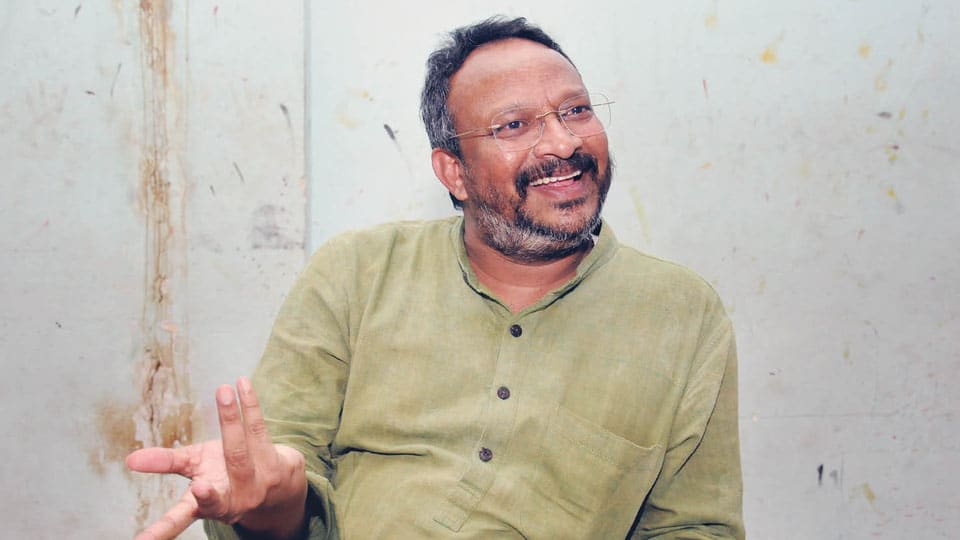
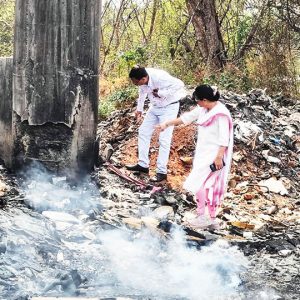
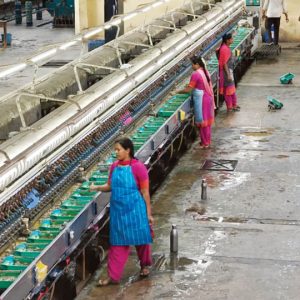
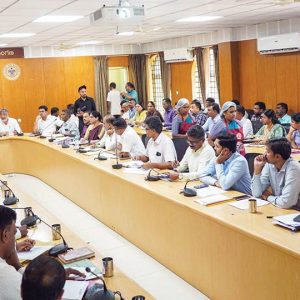
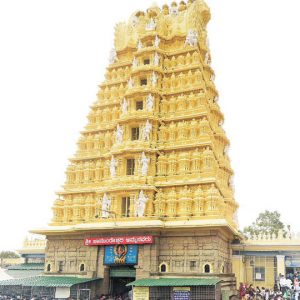
Recent Comments